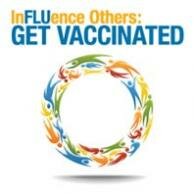Pnuemonia
What is pneumonia and what are the symptoms?
Pneumonia is an infection of the lungs. Symptoms of pneumonia can range from mild to severe, and can even be deadly. The severity depends on the type of organism causing pneumonia, as well as age and underlying health. Signs and symptoms of pneumonia include a cough with greenish or yellow mucus, bloody sputum, fever with shaking chills, sharp or stabbing chest pain worsened by deep breathing or coughing, rapid, shallow breathing, and shortness of breath.
Why get immunized for it?
Pneumonia kills more people in the United States each year than all the other vaccine-preventable diseases combined. Those who are at greatest risk for contracting pneumonia are young children and adults aged 65 and older. Pneumonia works very quickly as it has an incubation period of only 1-3 days and will come on very abruptly. Pneumonia can also cause delirium, lung abscesses (pus-filled cavities in the lungs), bacterial meningitis, middle ear infections, blood infections, and death if not treated properly. Pneumonia has many different types and subtypes, so if you've already had pneumonia before it doesn't mean you are protected from all the different types.
Getting the vaccine is also much cheaper than a hospital stay. In 2002, 750,000 seniors were admitted to hospital for pneumonia.
What is the financial cost of being immunized?
There is no cost for adults with Medicare Part B. For individuals with no health care coverage, the cost can range from $45 to $60 per immunization.



